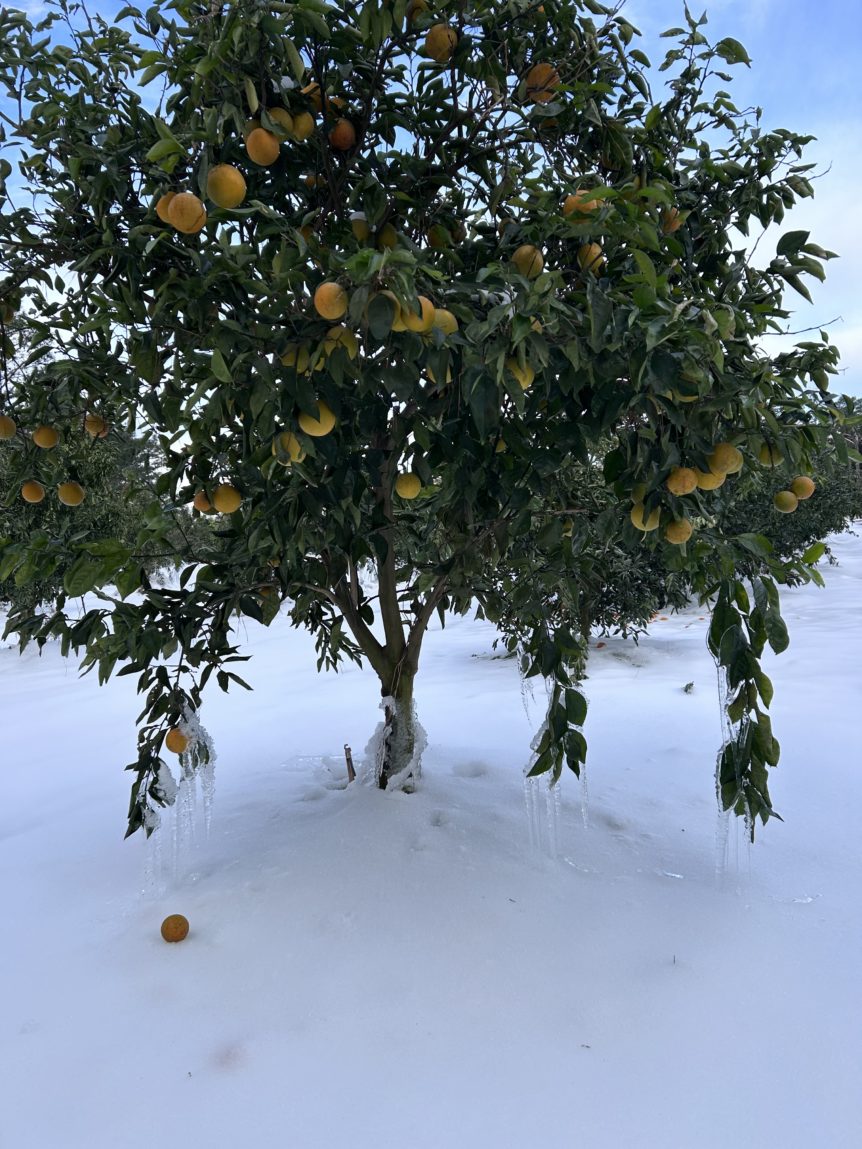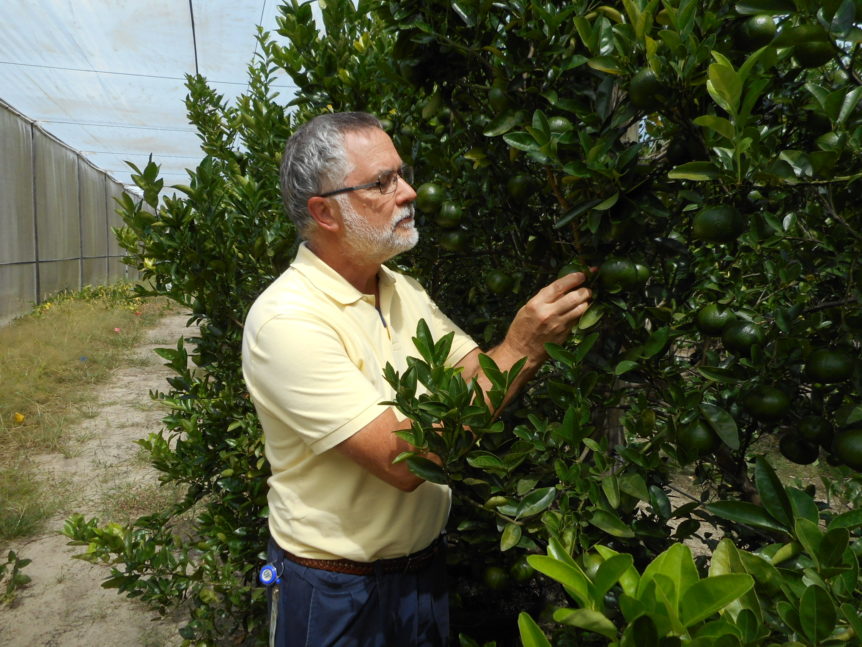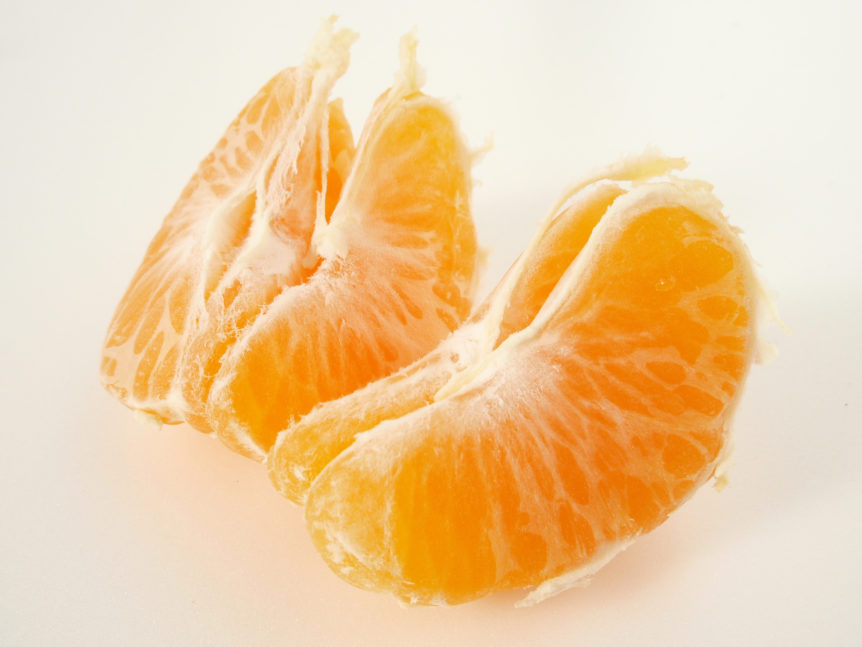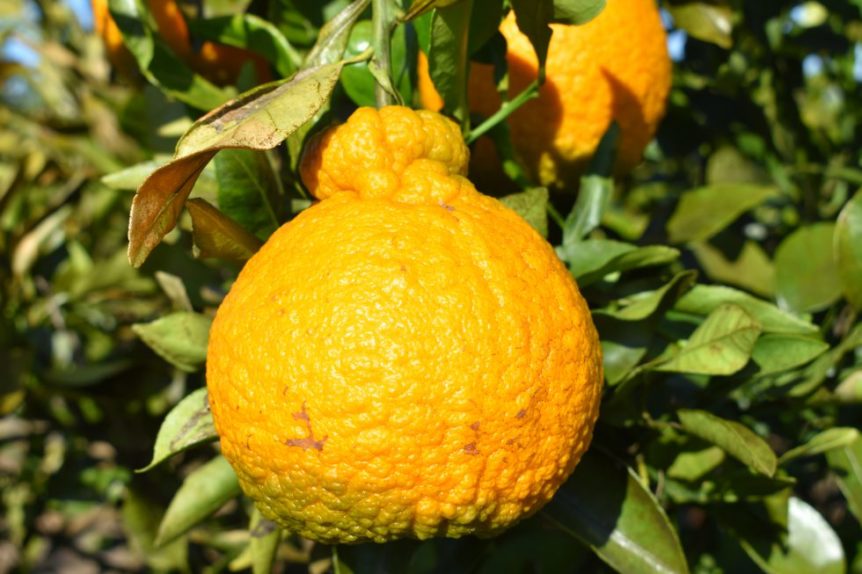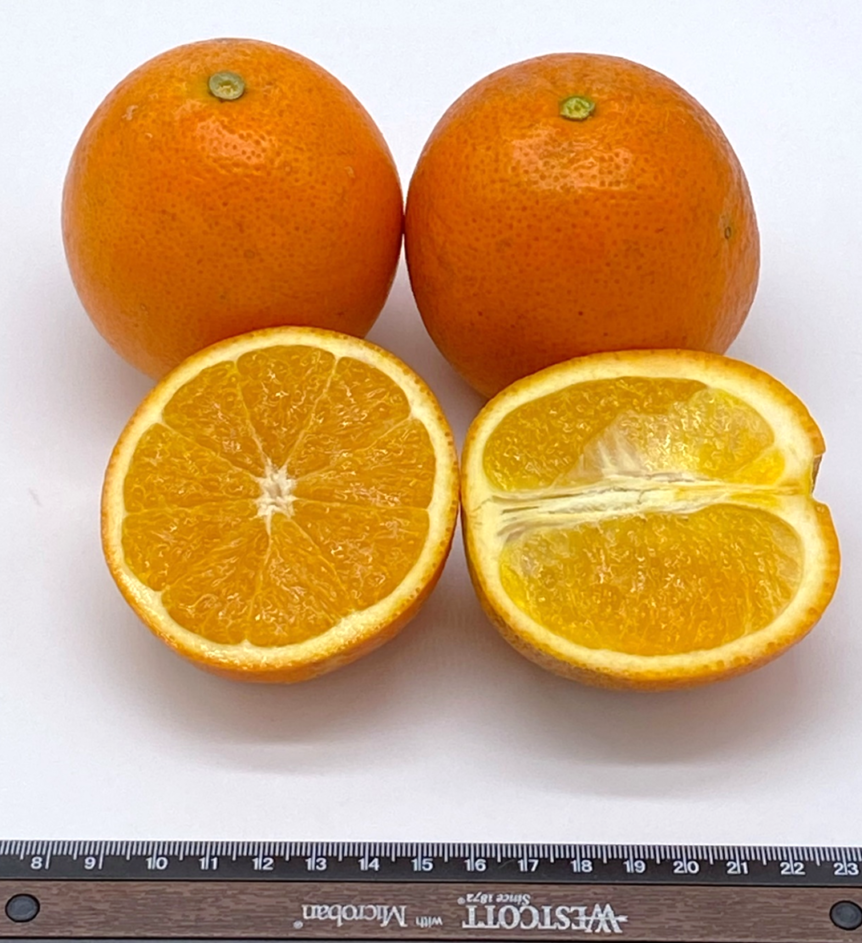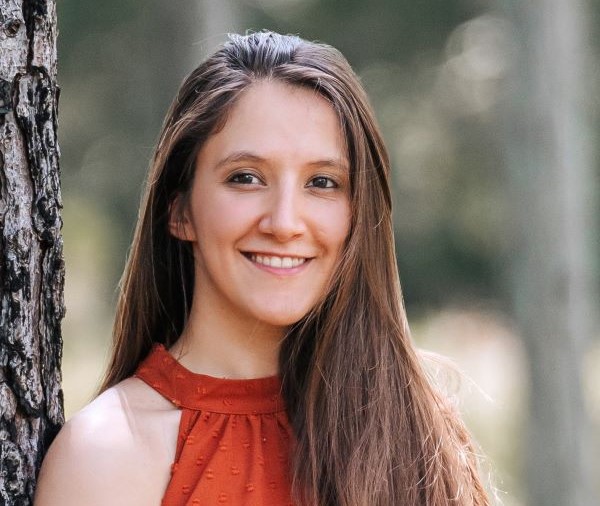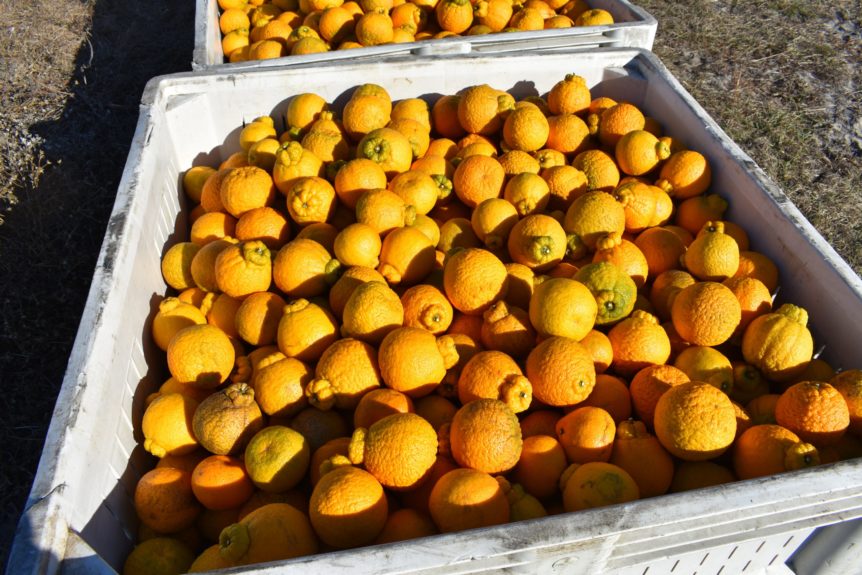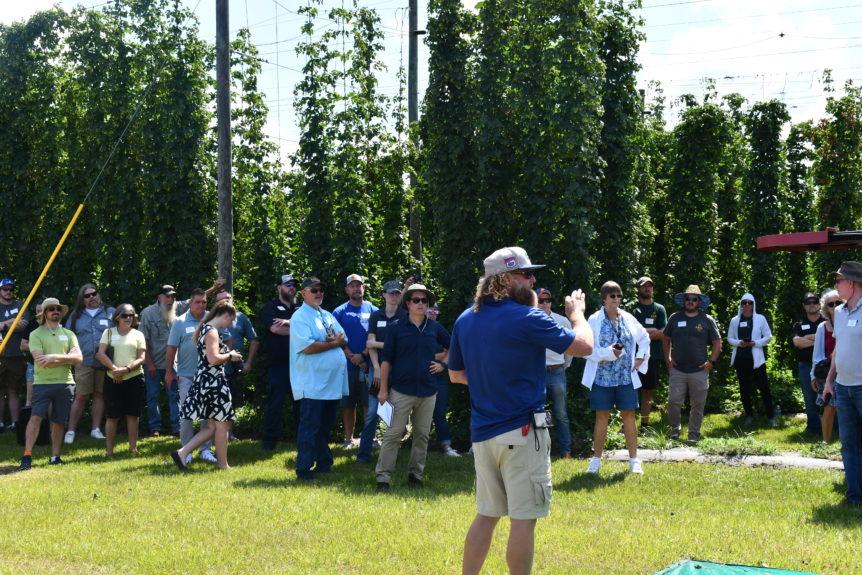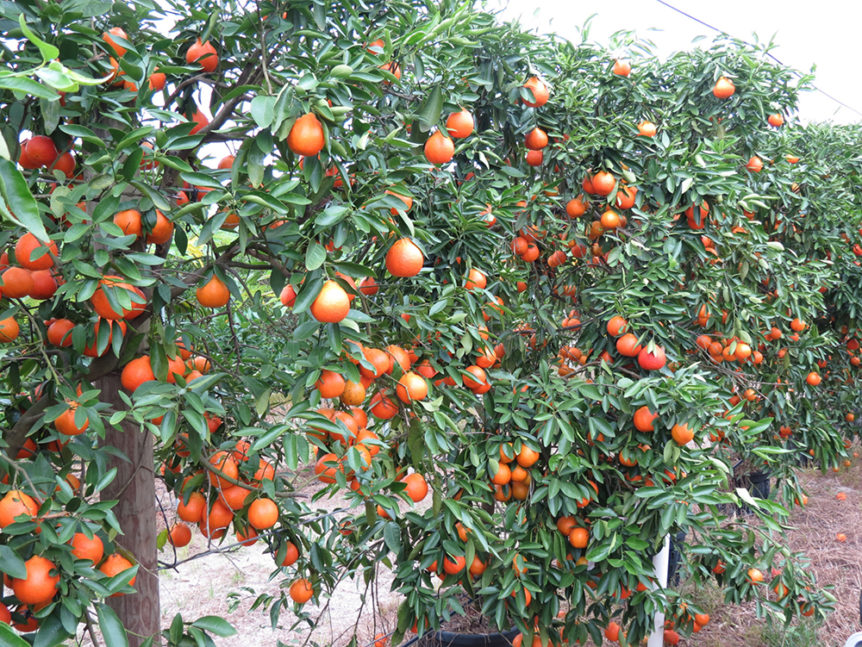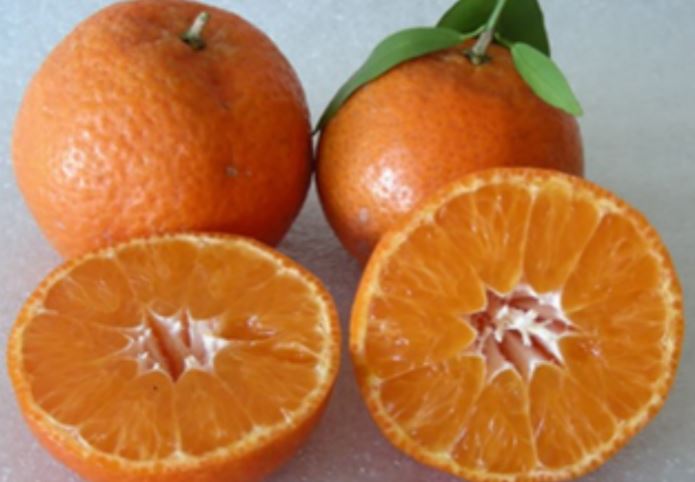Freeze tolerance is a focal point of citrus studies conducted at the University of Florida Institute of Food and Agricultural Sciences (UF/IFAS) North Florida Research and Education Center in Quincy. As citrus production continues to grow in the cold-hardy citrus region, growers need varieties that are able to withstand prolonged periods of sub-freezing temperatures. Leading that research is Muhammad Shahid, …
Growing More Than Grapefruit in CUPS
Growers use the citrus under protective screen (CUPS) production system to protect trees from the Asian citrus psyllid, the insect vector of HLB disease. While grapefruit is most commonly grown in CUPS, statistics support the belief that CUPS can be conducive to other types of citrus. “There’s a need to establish the growing requirements and the needs of other varieties. …
Georgia Citrus Grower Discusses Satsuma Situation
Georgia’s citrus industry has found its footing more than a decade into production. Whether growers can thrive for the next 10 years may depend largely on their ability to expand production beyond satsuma mandarins. “It is a work in progress. Anybody getting into it will need to consider that,” Georgia grower Buck Paulk said. “There’s a lot of unknowns with …
Shiranui Gaining Popularity in Cold-Hardy Citrus Region
Leaders in the cold-hardy citrus region have long advocated for growers to diversify their crop portfolios. Lindy Savelle, executive director of the Georgia Citrus Association, has wanted citrus producers in North Florida, South Georgia and South Alabama to plant alternatives to satsuma mandarins, which has been the predominant citrus type produced in the region. Diversification helps extend the harvest season. …
HLB at Center of Florida Citrus Breeding Efforts
Peter Chaires, New Varieties Development and Management Corp. executive director, spoke about citrus breeding at the Cold Hardy Citrus Workshop on Sept. 24 at the University of Florida Institute of Food and Agricultural Sciences Extension office in Perry. Chaires said HLB tolerance “is an essential element of everything that’s being done in the breeding program with a stronger emphasis than …
Research Aims to Diversify Georgia’s Citrus Crop
Satsuma mandarins helped establish the citrus crop in Georgia. Alternate varieties will help the state’s industry continue to grow. Mary Sutton’s appointment as the new University of Georgia (UGA) citrus Extension specialist should help growers implement varieties that have been tested and are suitable for Georgia growers. Part of her role will be to research alternatives to satsumas to see …
Big Year Expected for Diverse Georgia Citrus Crop
Georgia’s citrus industry is growing and so are the diverse varieties producers are planting every year. Jake Price, University of Georgia citrus agent, said at the Citrus Grower’s Summer Update meeting last week in Valdosta that there were 4,400 citrus acres planted in South Georgia. At approximately 145 trees per acre, this equates to about 638,000 trees. What started out …
Figuring Out the Right Hops “Recipe” in Florida
The University of Florida Institute of Food and Agricultural Sciences (UF/IFAS) Gulf Coast Research and Education Center hosted a hops field day in early June. The event included a tour of the center’s hops yard and educational presentations on growing the crop. Much of the hops used in brewing beer is grown in Washington and Oregon. Shinsuke Agehara, UF/IFAS associate …
Growers Must Settle for HLB-Tolerant Trees While Waiting for Resistance
The dream of citrus varieties being totally resistant to huanglongbing (HLB) disease (citrus greening) is still a distant reality for Florida growers. For now, they must depend on tolerant varieties to lessen the disease’s impact, which is widespread throughout most of the state. Michael Rogers, University of Florida Institute of Food and Agricultural Sciences (UF/IFAS) Citrus Research and Education Center …
Diversification Continues to Be Key for Cold-Hardy Region
Diversification is key to production remaining sustainable in the cold-hardy citrus region. It is message that industry leaders preach to producers who are looking to grow the citrus industry in North Florida, Georgia and Alabama. John Chater, assistant professor at the University of Florida Institute of Food and Agricultural Sciences (UF/IFAS) Citrus Research and Education Center, talked about the importance …
- Page 1 of 2
- 1
- 2










